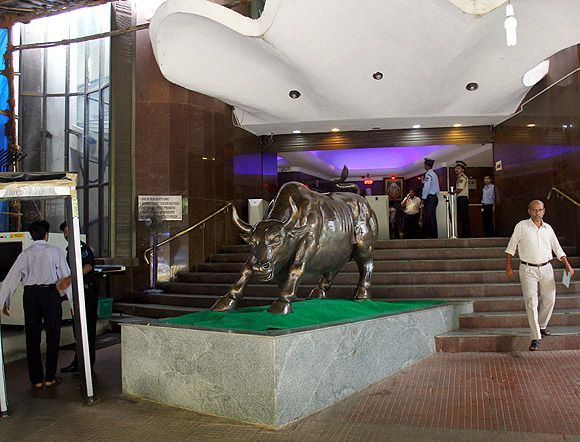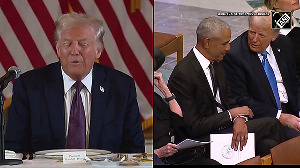 Global investors are fast losing appetite for equities, as deflation seems more of a reality. With commodity prices collapsing, few safe havens are left for investors, with many of the BRICS(Brazil, Russia, India, China and South Africa) losing their charm.
Global investors are fast losing appetite for equities, as deflation seems more of a reality. With commodity prices collapsing, few safe havens are left for investors, with many of the BRICS(Brazil, Russia, India, China and South Africa) losing their charm.
There’s a new theme driving investors - CIA (China,India and America). Nitin Jain, president, global asset management and capital markets, Edelweiss, says: “When we talk to global investors, they are not very optimistic about global equities but seem positive on CIA.”
These three countries are expected to perform better than the rest of the world, even if deflation lasts longer than expected. In a January 6 note, Macquarie Capital highlighted three countries with the best set of characteristics and the largest positive tilts as China, India and to a lesser extent, the Philippines.
After the initial euphoria around falling crude oil prices, investors are beginning to realise falling oil is suggestive of lower demand and growth. Deflation and weak global growth are not good for risky asset classes such as equities.
Other than weak demand, the fall in commodity prices has also been exacerbated by drying liquidity and a strengthening dollar.
Typically, when the dollar rises, commodity prices come down. With liquidity drying up after the conclusion of quantitative easing (QE) programme, the pressure on crude oil and other commodities has increased.
Inflationary expectations are falling across countries, leading to panic in global markets, with money moving to bonds. This is visible even in emerging markets such as India, where more foreign capital went into bonds than equities in 2014.
Typically, money moves to safer destinations when deflationary pressures increase and growth is no longer a given.
As Viktor Shvets and Chetan Seth of Macquarie Capital explain, there is no such thing as a good deflation or even severe disinflation when the global economy is leveraged almost three times and an average developed market is leveraged four times its gross domestic product.
“Severe disinflation increases real interest rates, delays purchases (stops bringing future consumption into present time) and has the potential of derailing the US domestic recovery,” they explain in a note dated January 6.
If the dollar appreciates further and commodities continue to fall, the nascent manufacturing renaissance in the US might come under threat, as would the shale gas revolution. Strategists and economists believe the US Federal Reserve is unlikely to tighten rates, given the recent developments and that it might even consider a QE4.
The European Central Bank, too, might continue to increase its own asset purchase programme.
Jain of Edelweiss says although it's tough to predict what central banks across the globe would do, nothing could be worse than what the world has endured.












 © 2025
© 2025